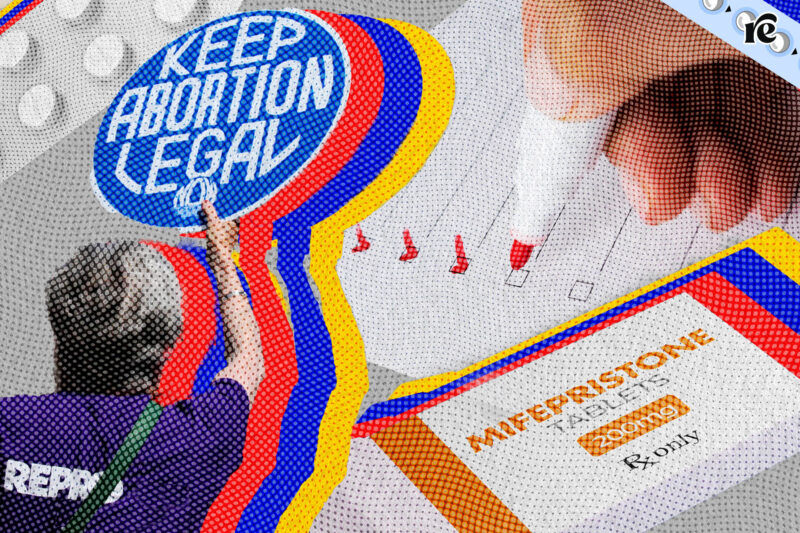Opinion: These Are 5 Things You Should Know to Safely Access Abortion Care in 2025
In an ever-changing abortion access landscape, it's crucial to know how to protect your privacy and well-being when seeking care.

For two decades, I have incorporated abortion care as part of my practice as a doctor. As a practicing OB-GYN and the CEO of Power to Decide, I have seen how political shifts and legal battles can strip away essential rights from those seeking safe, compassionate, basic health care.
As the fight for reproductive autonomy intensifies and people navigate this confusing landscape, there are five critical things everyone should know about abortion access to make sure they get the care they deserve.
Locating trustworthy abortion care
In 2022, when the Supreme Court overturned Roe v. Wade—which had established constitutional protections for abortion access—many states swiftly enacted abortion bans and restrictions. Currently, 14 states do not have any health centers that provide abortion care, and in some states where abortion is still accessible, other types of restrictions, such as waiting periods and parental consent laws, create unnecessary and burdensome barriers for people seeking abortion care.
Yet, even before the overturn of Roe, immense barriers to abortion care disproportionately harmed young people, people of color, folks living in rural areas, and people with low incomes. Beyond just finding a trusted abortion care provider, having to navigate the ever-changing legal, financial, and logistical hurdles to get an abortion has kept this basic reproductive health care out of reach for many people across the country for far too long—and it’s had terrible consequences.
Abortion bans and restrictions prevent people from having control over their bodies, force folks to navigate immense hurdles, and even create dire conditions for pregnant people. Resources such as AbortionFinder.org can help abortion seekers find trusted, verified providers so they can get the compassionate care they need and deserve.
Identifying fake clinics
From the outside, “crisis pregnancy centers” (CPCs) might look like legitimate clinics—but that couldn’t be further from the truth. CPCs are fake clinics run by anti-abortion groups that have no intention of providing abortion care. Instead, they use scare tactics to prevent abortions from happening. They often set up right next to legitimate health centers. CPCs outnumber real providers 3 to 1 on average in the U.S., according to The Alliance, and many use deceptive practices such as spreading misinformation, pressuring visitors into continuing a pregnancy, or delaying their decision-making process. These clinics advertise across search engines and on billboards as “pregnancy resource centers” or “women’s resource centers” that will support pregnant people.
In the midst of all the chaos, having trusted sources of abortion care information couldn’t be more important. Using verified resources helps people confirm that they’re getting information from legitimate, supportive providers. Because when it comes to our health, folks deserve nothing less than the truth.
Accessing funding and support services
As an OB-GYN who has seen patients from across the country, I’ve witnessed first-hand the obstacles they have to overcome to access abortion care. For many, this means traveling long distances from home, taking time off work, and covering the costs of appointments, meals, and lodging—all while facing the added stress of navigating potential legal risks for accessing basic health care.
If/When/How’s Repro Legal Helpline, M + A Hotline, Reprocare, and many abortion funds and local practical support groups are just a few of the organizations doing their best to support abortion seekers financially, legally, and emotionally. Folks can use AbortionFinder’s enhanced search tool to identify what kind of support may be available to them before, during, and after their abortions.
Protecting digital privacy
Digital privacy is ever more critical in an era of increasing surveillance, censorship, and legal restrictions on reproductive health care. With search history data, location tracking, and online conversations being collected, there are ways for abortion seekers to protect themselves.
Using AbortionFinder.org is a good place to start—it doesn’t track searches, store information, or collect user data. Plus, folks don’t need to share identifying details to find care.
Taking additional steps such as using encrypted messaging apps, private browsers and search engines, and turning off location sharing on apps can also help folks to protect their digital privacy.
Supporting abortion access
Access to abortion care empowers people to take control of their lives. Despite many efforts to mislead the public and enact bans and restrictions, most people support access to abortion care. Many communities see access to abortion care as a cornerstone of reproductive freedom that enables people to shape their futures on their own terms. The freedom and ability to have an abortion is an important human right, and the consequences of not having access to abortion care are often dire.
Throughout my career, I have seen first-hand how access to the full range of reproductive and sexual health care, including abortion, is essential for the well-being of my patients, their families, and their communities. Sharing abortion care resources, information, and knowledge is the first step in making sure everyone has the power to decide their own futures on their own terms.
